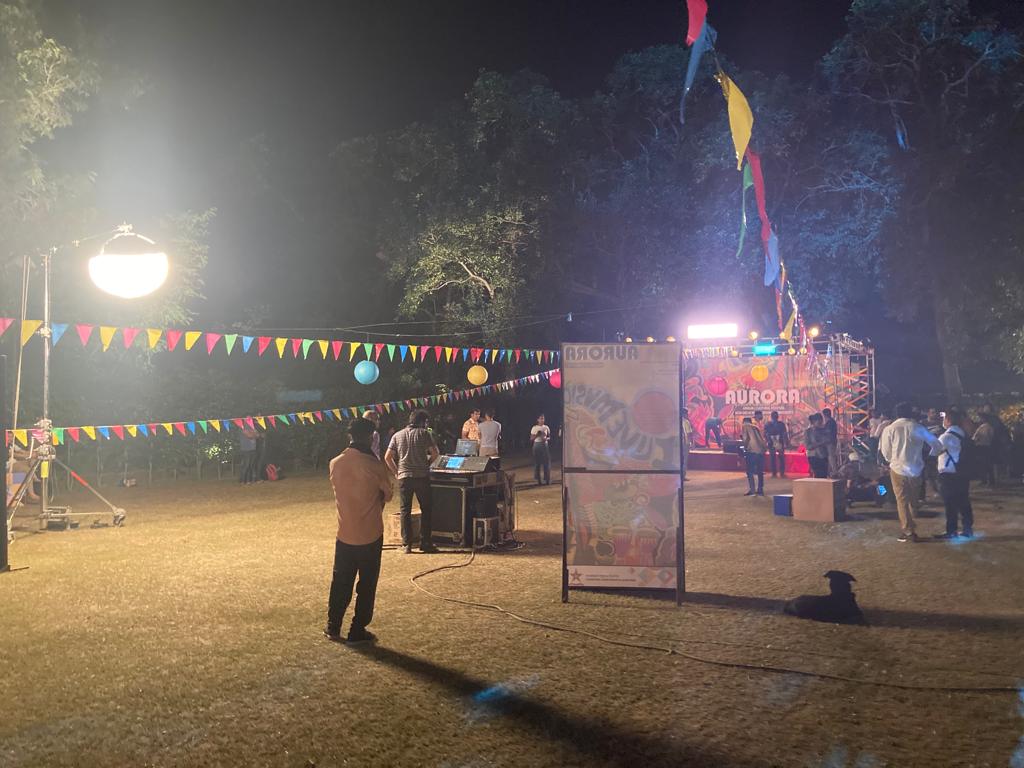The state of Maharashtra, with the highest number of COVID-19 cases in India, has finally chosen to resume offline education. The state government has allowed all non-agricultural colleges, state-run universities, deemed universities, self-financed universities and colleges affiliated to them to resume holding physical classes.
However, other central universities, including Jamia Millia Islamia and Aligarh Muslim University, have shown no signs of reopening their doors to students.
“Mushaira ho raha hai, movie shoots ho rahe hain, Har event celebrate ho raha hai …bas campus me bachche nahi aane chahye kyunki unse Corona phail raha hai. Jaanboojh kar Jamia band rakha ja raha hai (Poetic Symposium is being held, movies are being shot, other events are being organised but according to JMI admin students should not come to campus because they are the only spreaders)” said Arbab Ali, who has completed his masters from Jamia Millia Islamia. Because of the anti-Citizenship Amendment Act and National Register of Citizens protests, the university made national news in the month of December 2019. According to Ali, the Jamia administration is concerned that if students return to campus, they would protest against policies, farm laws and the Lakhimpur incident.
Zaki ur Rahman, an undergraduate student at Aligarh Muslim University, holds similar views. “VC ne kaha tha ki saare bachchon ke muqaddame wapas karwaynge (Vice-Chancellor had said that all the cases registered against students will be withdrawn),” said Rahman, referring to the criminal cases registered against students after December 15, 2019. Since then, however, there has been no such initiative. As a result, the VC is afraid that if students return to campus, there would be a strong demand for the cases to be dropped.

JNU students holding a protest demanding the administration to resume offline classes. Image: special arrangement.
Rahman, who is from Sambhal and belongs to a marginalised community, did not get a decent grade in his examinations and has suffered a lot of problems as a result of the online system. A recent survey by economists Jean Dreze and Reetika Khera, researcher Vipul Paikra, of around 1,400 disadvantaged school kids (Class 1–8) revealed exactly how much their education has suffered since schools were shuttered due to the coronavirus outbreak last year. Only 8% of children in rural regions were found to be taking online classes, according to the survey. All of this is due to poor internet access and a scarcity of resources. “Certainly, there have been losses at the primary level but the loss at university education is something no one is talking about,” said Rahman, a student of political science.
According to a poll performed by the Indian government’s National Statistical Office (NSO), one out of every eight students enrolled in a school or college drops out before finishing their education. The dropout rate in our country is influenced by a number of factors such as poor schooling, household economic situation, social well-being, socio-economic status, etc. But now it includes unusual scenarios resulting from a pandemic like COVID-19 too.
Rahman is not the only one who has struggled due to the unavailability of the internet. Aatika Singh, a postgraduate student at Jawaharlal Nehru University(JNU), is tired of online lectures and believes it is high time for universities to become fully functioning. She is optimistic, though, because the JNU administration is working to open gradually. But the harm has already been done, she believes. For final-year students, the JNU and Delhi University (DU) are partially functioning in a phased manner, but she is not eligible because she is a first-year student.
Many administrative modifications have been implemented in varsities under the guise of lockdown. Earlier the passing grades required for students in JNU were 3 CGPA but in 2019 it has been increased to 4. As a result of which more than 90 students failed only of School of Language last month. Since then, protests are going on in the campus by students demanding to undo passing marks to CGPA 3. “There have been assaults on reservation in terms of seat distribution, and scholarships have been delayed beyond one’s wildest dreams,” Singh, a Delhi resident, says.
Concurring claims were made by Ali too. “Anti-student policies were introduced behind closed doors,” Ali claims. Citing an example, he goes on to say that if the physical classes had been in existence last year, a 120% fee hike for a postgraduation in physiotherapy degree would have been unthinkable since there would have been strong opposition by students to the fee spike. Talking about the selective approach of administration as it has resumed classes for practical courses, he argues that if the COVID-19 is the sole reason for not calling students to the campus then why are they (students of practical courses) are being called.
However, Shruti Singh from Hansraj college of DU has a different take on it. “The infrastructure of my college will be difficult to sanitise if all the students come back to college,” says Singh.
Students are organising a protest in the near future to demand that the AMU campus be reopened. “Kisi country ki
cream central university se nikalti hai, agar central university hi band rahegi, kya hoga us country ka anjaam? (Any country’s cream comes from its central universities; imagine how that country would be if they remained closed?)” remarked Rahman, who is set to take part in the demonstration next week.
Salman Saleem is a post-graduate student at AJK MCRC, Jamia Millia Islamia.
Featured image: A movie being shot in Jamia Millia Islamia campus.
All images provided by the author

